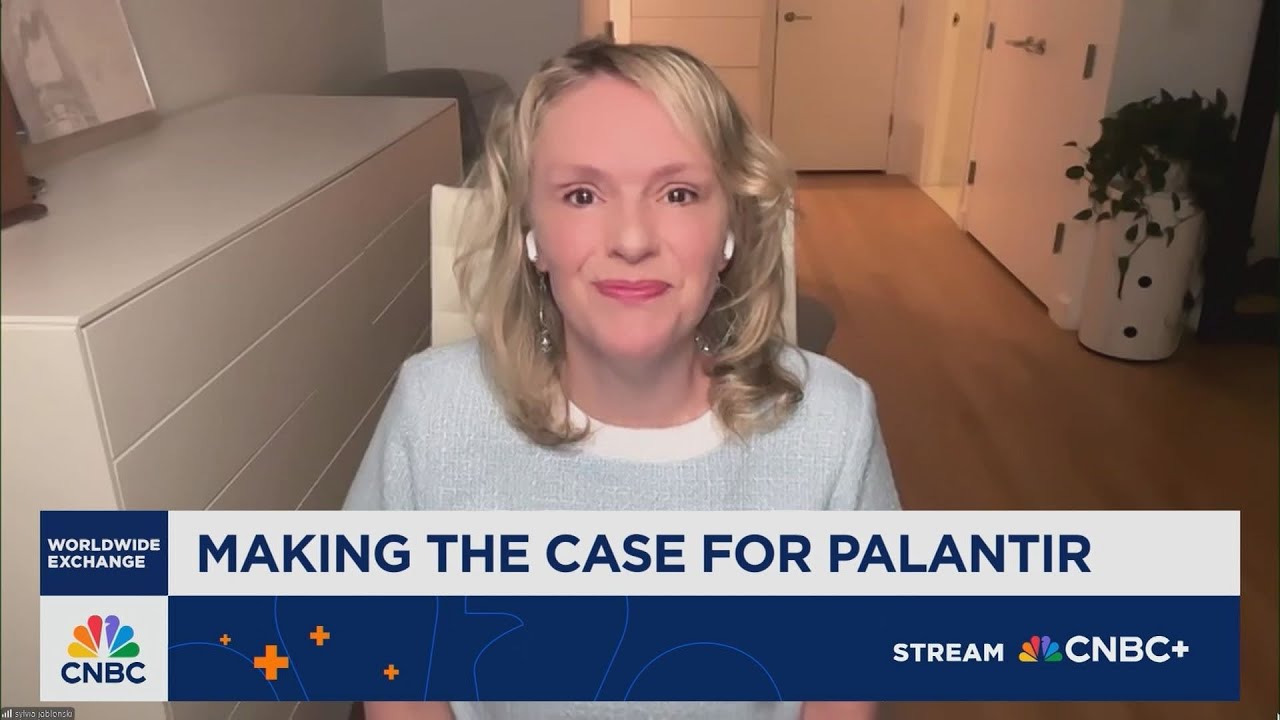The video discusses how Palantir has gained significant market attention this year, overshadowing Nvidia with its strong growth in AI, data analytics, and government contracts, supported by robust financial performance and strategic focus on quantum computing. Despite concerns over its high valuation, the speaker believes Palantir’s fundamentals and market momentum justify its potential for long-term growth and influence across the tech and AI sectors.
The discussion begins with an acknowledgment of Palantir’s rising prominence in the market, especially among retail investors and as a leader in AI software. The speaker notes that Palantir has gained significant attention this year, seemingly overshadowing Nvidia’s previous dominance in the AI space. Palantir’s focus on data mining, optimization, and its involvement in government contracts, including pending deals with NATO, highlight its strengths in AI and quantum computing readiness. The company’s commercial business now accounts for about half of its revenue, reflecting its expanding influence across sectors.
The speaker emphasizes Palantir’s impressive financial performance, citing consistent revenue growth over six consecutive quarters and optimistic projections for the future. They mention expected revenue growth of 36% and EPS growth of 60%, with the stock soaring over 300% last year and continuing strong gains this year. These figures underscore Palantir’s position as a stellar performer in the AI industry, driven by its leadership in data analytics, optimization, and government contracts. The company’s strategic focus on quantum readiness and defense contracts further bolster its growth prospects.
Despite Palantir’s strong performance, some skeptics question its valuation, with critics pointing out its high price-to-earnings ratio of around 220 times forward earnings. The Barron’s article cited in the discussion questions whether such a valuation makes sense given the company’s current fundamentals. The speaker counters this skepticism by drawing parallels to Nvidia’s past valuation concerns, arguing that Palantir’s growth trajectory, backed by its projects and market tailwinds in AI and quantum computing, justifies its high valuation over time.
The conversation highlights the broader impact Palantir’s success could have on related sectors, particularly quantum computing and other AI companies like Nvidia. The speaker suggests that Palantir’s rise may influence investor sentiment and valuations across these fields. They also mention the importance of Dr. Karp’s philosophy on ontology in AI development, which underscores Palantir’s innovative approach. The recent positive market rally, driven by strong tech earnings, is seen as a favorable environment for Palantir and similar companies to continue gaining investor confidence.
In conclusion, the discussion portrays Palantir as a company riding a significant growth wave fueled by its leadership in AI and quantum computing, robust financial results, and strategic government and commercial contracts. While its valuation appears high, the speaker believes that Palantir’s fundamentals and market tailwinds support its long-term potential. The company’s influence is expected to extend beyond its immediate sector, potentially impacting the broader tech and AI landscape, especially as market sentiment remains optimistic following recent earnings reports.
